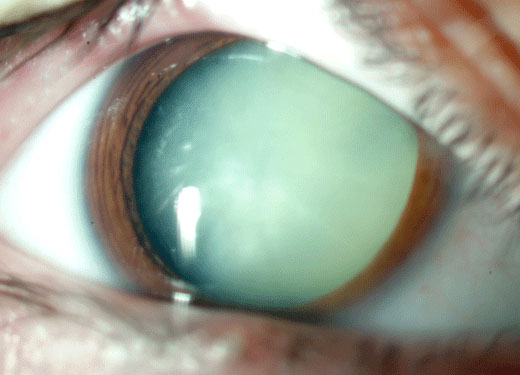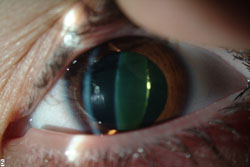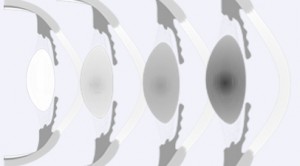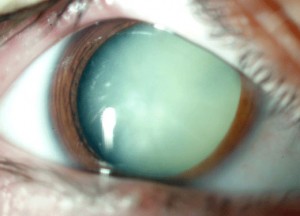The answer to this question is quite simple. Firstly, it is important to remember that a cataract is a very common condition, so that a large portion of people over the age of 60 suffer from it and are at different stages in the development of a cataract.
Secondly, a cataract is not painful, so that on a day to day basis the only adverse effect is blurry vision. In the early stages, it is possible to overcome this phenomenon by occasionally changing the power of one’s glasses and thus limit, to a certain extent, the visual disturbance. When a cataract is only significant in one eye, one can still perform all his/her daily tasks, including driving, owing to normal visual acuity and visual field in the other eye. Only a small minority of the population, such as pilots, ophthalmologists, public transportation drivers, and other similar examples, require proper vision in both eyes. Thus, it would not be incorrect to say that one can live a full life with an early cataract or even an intermediate cataract in both eyes, or alternately, with an advanced cataract in one eye.
At the same time, there is no reason that, at the start of the 21st century, a person should be forced to see well out of only one eye when it is possible, with surgery, to correct the vision in the “weaker” eye. When a cataract reaches an advanced stage in both eyes, daily functioning is significantly affected. However, there is no need to wait until this late point before taking care of the problem. Since it is obvious that the disease will continue to progress, and that in the near or intermediate future it will become necessary to perform cataract surgery, it is preferable to aspire to allow the visual disturbance to disrupt one’s daily routine as little as possible, and once vision is significantly affected, it is advisable to consider, together with your ophthalmologist, whether the condition is ready for surgery.
In summary, many people spend years with cataracts that slowly develop, and manage to perform all their daily activities. When the time comes that both the patient and doctor feel that the cataract is ripe for surgery, a date can be scheduled to have it removed. Usually, the cataract is first removed from the eye that sees less, and once the vision is restored in that eye, a date can be scheduled for surgery in the second eye.




